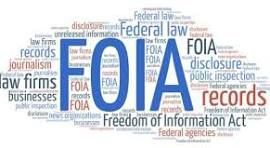
Dan Shapiro & Justin Silva to speak about Top Challenges in Local Government Law at National Business Institute Seminar
TOP CHALLENGES FACING LOCAL GOVERNMENT LAW NATIONAL BUSINESS INSTITUTE SEMINAR 75960 June 12, 2017 […] The post Dan Shapiro & Justin Silva to speak about Top Challenges in Local Government Law at National Business Institute Seminar appeared first on Shapiro & Associates.

TOP CHALLENGES FACING LOCAL GOVERNMENT LAW
NATIONAL BUSINESS INSTITUTE SEMINAR 75960
June 12, 2017 Audio Webinar 2:00 PM – 5:15 PM
Practitioners in government law practice constantly face new challenges. In this concise yet comprehensive guide, Dan and Justin will provide you with the knowledge you need to face current issues facing government law.Some of the topics they will discuss include:
- Clarifying uncertainties your clients face about open meetings and public hearings.
- Updating FCC changes concerning cell tower placement and zoning issues.
- Shedding light on current legal controversies involving inclusionary housing requirements.
AGENDA / CONTENT COVERS
2:00 PM – 3:30 PM EST
- Open Meetings and Public Hearing Law Changes
- Cell Tower Zoning and Placement: FCC Changes and More
3:45 PM – 5:15 PM
- Due Process in Zoning Hearings
- Inclusionary Housing Requirements
RSVP NOW. Please click here.
SPEAKERS
DANIEL C. SHAPIRO
DANIEL C. SHAPIRO is the managing attorney of Shapiro Associates Law, where he practices in the areas of land use and zoning, municipal law, and civil litigation. He represents private developers and builders, and advises governmental entities on a variety of issues. Mr. Shapiro has argued before the 7th Circuit Court of Appeals, the Illinois Supreme Court and the Illinois Appellate Courts; and has successfully presented administrative actions before planning commissions, zoning boards, and village, city and county bodies. He is a member of the American, Illinois and Chicago Bar associations; and is a Village Trustee for the Village of Deerfield, Illinois. Mr. Shapiro has been a speaker at Illinois Municipal League functions and has spoken on such areas as the Illinois Freedom of Information Act, the Illinois Open Meetings Act, and a variety of zoning and land use issues,. He received his B.A. degree from the University of Michigan and his J.D. degree from the American University Washington College of Law.
JUSTIN A. SILVA is an attorney with Shapiro Associates Law, where he practices in the areas of real estate, land use, zoning, municipal law, and civil litigation. Mr. Silva received his B.A. degree from the University of Iowa and his J.D. degree from Chicago-Kent College of Law. As a law student, he was named to the Dean’s list all three years and received the CALI Award in Land Use & Zoning – given to the highest scoring student in each law school class. Prior to joining DSL, Mr. Silva was a managing real estate broker with Optima, Inc., a national real estate development firm specializing in mid and high-rise multi-family development and construction. Mr. Silva is admitted to practice law in Illinois and before the United States District Court for the Northern District of Illinois. He is a member of the Illinois State and Chicago bar associations.
CONTINUING EDUCATION CREDIT
Please refer to Continuing Education Credit FAQ for general information about seeking credit for your participation Email: credit@nbi-sems.com
*Photo Credit : Adobe Stock

CONTACT US TODAY
Contact Us
We will get back to you as soon as possible.
Please try again later.
LOCATION
570 Lake Cook Road, Unit 119
Deerfield, IL 60015
Shapiro & Associates Law | All Rights Reserved |
Created by Olive + Ash.
Managed by Olive Street Design.











